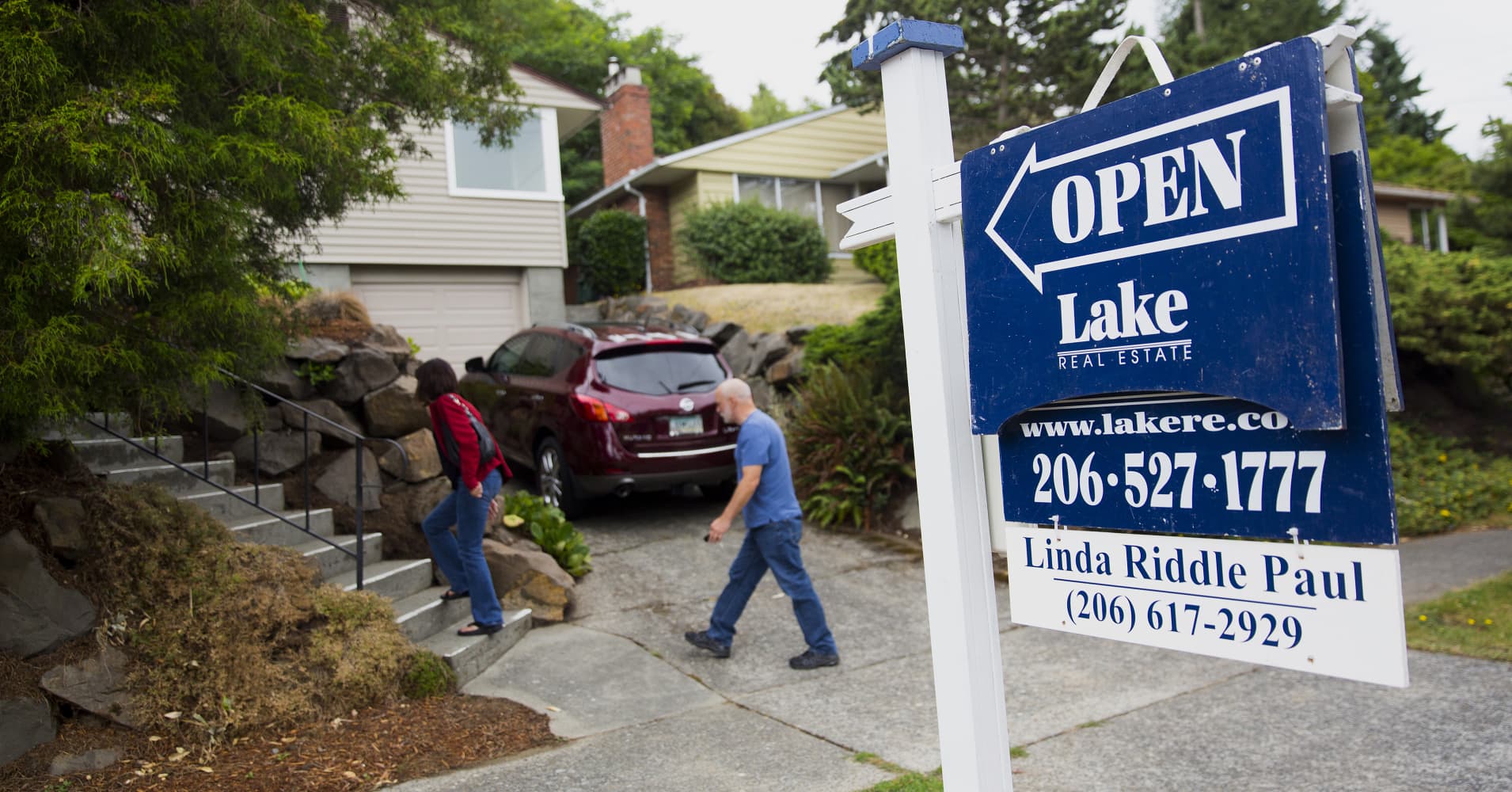
It was just last spring that home buyers in most of the nation were digging ever deeper into their pockets, bracing for a bidding war on whatever property they chose. And now, suddenly, they're not. Home sales have slowed to a crawl nationally, and it's not just the winter temperatures. The market's pulse has become weaker, especially in areas that were hottest just last spring.
Just 32 percent of offers written by Redfin, a real estate brokerage, saw competing bids. That is down from 45 percent in November of last year.
In Seattle, where demand has outstripped supply for years, the drop is more abrupt. More than half of homes a year ago saw bidding wars, while less than a quarter are seeing them now.
Home values in Seattle were the hottest in the nation last spring, up 13 percent annually in April, according to the S&P CoreLogic Case-Shiller Index. That gain was down to 8 percent in September, the most recent reading. And supply in Seattle is up 60 percent compared to a year ago, according to Realtor.com.
In Los Angeles, 68 percent of properties for sale saw multiple offers a year ago. That is now down to 38 percent. In Southern California overall, home sales in October were at the slowest pace for that month in seven years, according to CoreLogic.
SOURCE: REDFIN
"Rising prices and mortgage rates have priced out some potential buyers while causing others to conclude that waiting to buy could pay off, especially as listings rise," said Andrew LePage, a CoreLogic analyst. "For the past three months, sales have fallen year over year in all six counties and, in the last two months, across most major price categories including above $1 million."
Mortgage rates rose sharply in September, and by October, the average rate on the 30-year fixed was more than a full percentage point higher than a year ago. With home prices already overheated in many major markets, higher rates broke the bank for most buyers.
Rates fell back again in November, but were still higher than a year ago. The drop did little to boost sales. Mortgage applications to buy a newly built home actually fell 11 percent year-over-year in November, according to the Mortgage Bankers Association, despite the rate relief.
And after one of the worst housing shortages in memory, supply is slowly starting to rise. Housing inventory in the large metropolitan markets Redfin tracks was up 5 percent in November annually, the largest supply boost in three years. Of course all real estate is local, and some markets are filling with listings faster than others.
Inventory jumped in formerly hot markets like San Jose (+123 percent), Seattle (+96.5 percent) and Oakland (+60 percent) but other markets are still seeing drops, like Philadelphia (-24 percent and New Orleans (-19 percent).
In Las Vegas, which was the epicenter of the housing crash and the subprime mortgage crisis, sales and prices were raging last year and last spring, but supply is now spiking and sales have ground to a halt. The inventory in November was up 54 percent from a year ago and sales were down 12 percent, according to the Greater Las Vegas Association of Realtors.
"Even though our local home prices have been appreciating at the fastest rate in the country through much of this year, prices have been fairly flat for the past few months," said GLVAR president Chris Bishop, an area real estate agent. "I wouldn't be surprised to see that trend continue as we head into the holidays and what is traditionally the slowest time of year for home sales."
In Denver, another market that was incredibly competitive last year due to very short supply and high demand, inventory in November jumped nearly 47 percent annually, according to the Denver Metro Association of Realtors. Sales fell 12 percent. The high end is seeing the biggest shift.
"The power switched to buyers when negotiating on homes priced over $1 million, with 7.22 months of inventory," wrote Jill Schafer, chair of the DMAR Market Trends Committee.
Even in Dallas, where demand is still quite strong due to a healthy local economy, inventory is up over 15 percent, and 14 percent of listings saw price reductions in October, according to Realtor.com.
"I am seeing an increasing number of price reductions in homes over $500,000, as our inflated market has simmered, but not plummeted," said Laura Barnett, a real estate agent with RE/MAX DFW Associates. "Not too many bidding wars, unless the home is priced well below market."
via IFTTT
No comments:
Post a Comment